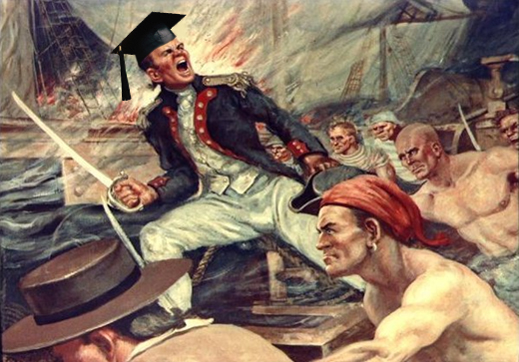
By John Helmer, Moscow
Russian labour unions have been crippled since the end of the Soviet Union. With the exception of the coalminers and the seafarers, they have been incapable of defending their members’ wages, terms of employment contracts, or work safety standards. This week the Seafarers Union of Russia – affiliated with the International Transport Workers Federation – scored an unusual victory which has left the shipowners and the federal transport officials who attempted to follow their lead, quite speechless.
A proposed new Russian law requiring mariners to meet new competency and marine institute graduation standards was blocked on Monday in Moscow after the seamen’s union told government officials and the Union of Russian Shipowners that implementation now would decimate the ranks of Russian masters and engineers on board Russian-flagged vessels. Alexander Bodnya, a union official, told Fairplay that after hot debate at a meeting at the federal Ministry of Transport, it was agreed the law requiring Russian mariners to certify they have graduated at higher levels of education than are required by the present competency certificate will be postponed for at least three years.
The current Russian certificate of competency is good for five years. The proposed draft legislation would allow revalidation only if mariners can produce documents substantiating higher levels of education than have been required to date.
According to the seafarers union, if these new competency certificate requirements are enacted and introduced immediately, there will not be time for Russian mariners to study and meet the new standards. They will lose their jobs, the union believes, and be replaced by Ukrainian or Filipino mariners.
The tighter competency requirement had been backed by the Union of Russian Shipowners, according to their chief executive, Vyacheslav Zamoryanov, although the shipowners have said they are willing to accept secondary school graduation level in place of the proposed tertiary-level requirement. Zamoryanov and the shipowners’ group are suspected by the mariners’ union of promoting the change, because, the union believes, it would promote lower-salary foreign masters and engineers to replace Russian nationals. Zamoryanov declined to respond on that issue, or explain why the change was being pushed in the form of a new law.
Three officials at the Transport Ministry were involved in drafting the new law, and participated in Monday’s meeting. They are Konstantin Palnikov, director of the department for state policy for maritime and river transport; his deputy Vitaly Kluyev, and a consultant to the department, Ivan Gotovchits. Not one has agreed to say why the ministry had taken this initiative, or what impact it would have on vessel crewing.
Asked who benefits, who loses from the new draft law, Roman Kanunik, spokesman for the Russian Seafarers Union, told Fairplay: “I don’t know for whom it’s good. All I know is that it isn’t good for Russian sailors.” The bill has yet to go from the Transport Ministry to the new Duma, and there is thus time, the seafarers union believes, to fight against enactment, even with the 3-year transition proviso that has been conceded.











Leave a Reply